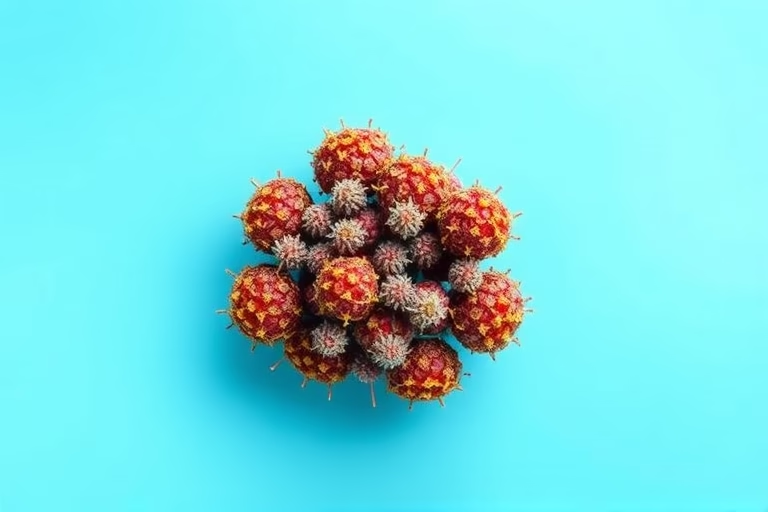We will be talking about natural IVF. This innovative approach to fertility treatment focuses on utilizing the body’s own natural processes to achieve conception. Unlike conventional IVF, which may involve hormone stimulation and multiple embryo transfer, natural IVF relies on minimal intervention. The goal is to create a more gentle and less invasive experience for women who wish to conceive. This method recognizes the complexities of the female reproductive system, respecting its natural rhythms while enhancing the chances of success. In this way, natural IVF provides an appealing option for individuals looking to conceive with less medical intervention and more holistic support.
Understanding Natural IVF
Natural IVF stands apart from traditional IVF methods in significant ways. In traditional IVF, medications are administered to stimulate the ovaries, leading to the development of multiple eggs. Following this, eggs are retrieved, fertilized in a lab, and then embryos are cultivated for transfer. The process can be emotionally and physically taxing, often leading to discomfort and complications.
In contrast, natural IVF works with the body’s own cycle, usually retrieving only one mature egg during a natural menstrual cycle. This method reduces the risk of ovarian hyperstimulation syndrome and other complications associated with fertility drugs. By allowing the body’s natural processes to guide treatment, natural IVF aims to provide a more harmonious pathway to conception.
Research suggests that natural IVF may also lead to lower costs, fewer invasive procedures, and a reduced emotional burden. As this method gains popularity, it’s essential for prospective parents to explore its potential benefits and limitations thoroughly.
The Benefits of Natural IVF
Natural IVF presents several advantages that can appeal to those considering fertility treatment. These benefits include:
The richness of these benefits makes natural IVF an appealing option for many couples and individuals, particularly those who prefer a more natural approach to conception.
Comparing Natural IVF and Traditional IVF
When considering fertility options, it is crucial to compare natural IVF with traditional IVF, understanding both approaches’ nuances. Traditional IVF is often regarded as the conventional route to achieving pregnancy. In this method, hormonal medications stimulate the ovaries to produce multiple eggs. This can lead to higher success rates per cycle but introduces various complications associated with medication use.
In contrast, natural IVF advocates for a single egg retrieval during the women’s natural cycle. While this may seem to reduce the chances of conception due to fewer embryos being available for transfer, studies have shown that the quality of the egg retrieved in natural IVF can sometimes lead to comparable or superior outcomes.
For couples weighing these options, several factors should be considered:
Ultimately, the choice between natural IVF and traditional IVF should be made collaboratively between the patient and healthcare provider, ensuring alignment with personal values and desires.
Who is a Good Candidate for Natural IVF?
Natural IVF is not suited for everyone, but specific individuals may benefit greatly from this approach. Candidates include:
Additional factors to consider include age, health history, and reproductive goals. Consultation with a reproductive specialist can assist in determining if natural IVF is a suitable pathway.
Preparation for Natural IVF
Before beginning natural IVF, specific preparations must be made. These preparations help maximize the chances of success and ensure overall wellness during the treatment process. Key preparatory steps include:
Increasing awareness of overall health and readiness for natural IVF can enhance the experience, leading to a more favorable outcome.
Post-Treatment Considerations
Once the natural IVF cycle is complete, several important considerations arise. These include:
Responding to these post-treatment aspects can help ease the transition into the next phase, whether experiencing the joy of pregnancy or preparing for next steps.
Final Thoughts
In summary, natural IVF presents a compelling alternative to traditional IVF. By minimizing medication use and focusing on the body’s natural cycle, individuals seeking conception can benefit from a gentler approach to fertility treatment. Evaluating the unique advantages of natural IVF is essential for anyone considering their options in reproductive health.
When contemplating IVF strategies, it is pivotal to assess personal needs, comfort levels with medical interventions, and overall fertility goals. The journey to conception can be multi-faceted and sometimes challenging, but natural IVF offers an opportunity to honor the body’s natural processes while enhancing fertility potential.
As interest in natural IVF increases, many couples are turning to this method for its holistic approach, reduced costs, and emotional considerations. Working with healthcare professionals to explore this option can lead to informed decisions and a personalized pathway to parenthood. In the end, exploring the myriad facets of natural IVF can illuminate a hopeful path for couples seeking to create or expand their families.
Frequently Asked Questions
1. What is natural IVF?
Natural IVF is a method of in vitro fertilization that relies on the body’s natural ovulation cycle, retrieving only one egg without the extensive use of fertility medications.
2. How does natural IVF differ from traditional IVF?
Natural IVF typically involves fewer medical interventions and less reliance on hormone medications compared to traditional IVF, which stimulates the ovary to produce multiple eggs.
3. Who can benefit from natural IVF?
Ideal candidates for natural IVF may include younger women with regular menstrual cycles, those experiencing unexplained infertility, and individuals preferring a more natural approach to conception.
4. What should I expect during a natural IVF cycle?
During a natural IVF cycle, patients can expect close monitoring during ovulation, minimal medical intervention, and retrieval of a single egg for fertilization.
5. Is natural IVF successful?
Success rates for natural IVF can vary. Factors affecting success include age, egg quality, and individual health. Consulting with a fertility specialist can provide more personalized insights.
Further Reading
What Type of Psychotherapy Is Best for Anxiety?







